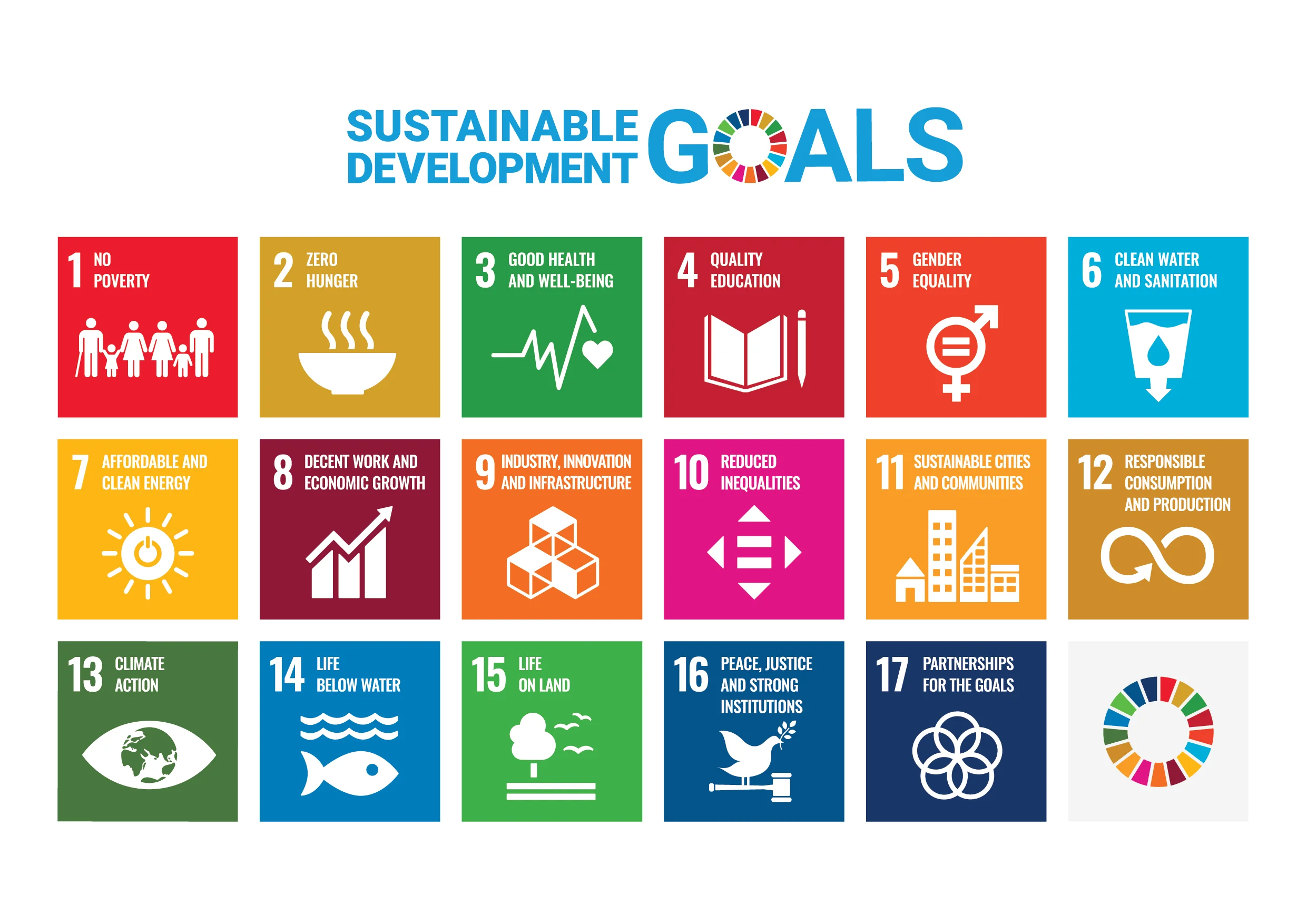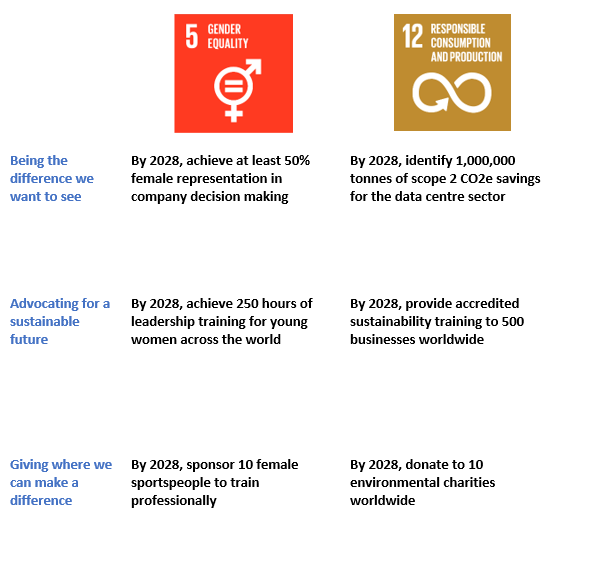Interact supports the UN Sustainability Development Goals
Astrid Wynne | June 6, 2022

Interact launched its official support of the UN Sustainable Development Goals this month. We decided to support three focus goals and set six specific targets to achieve over a period of five years. This is far from the only strand of our sustainability strategy, but it is an important one. We will be weaving it into other programmes that approach sustainable business practice in other ways over the coming months.
A word on the SDGs
The UN Sustainable Development Goals (SDGs) cover 17 global pledges for a better world. They begin with “No Poverty” and “Zero Hunger” and progress right through to “Peace, Justice and Strong Institutions” and “Partnerships for the Goals”. In broad terms, the aim is to deliver a better world but every metric – increased standard of living for all of the world’s citizens, reduced negative impact on the environment and resources as well as better institutions and government. It is an ambitious programme to say the least and has limitations. However, it does have several key benefits:
- Firstly, this is a programme that every single one of United Nations member states have signed up for; it is a global commitment that all organisations are invited to join. It also gives us a common language for change.
- Secondly, the programme is accessible and easy to understand. Each one of goals is clear and distinct and supported by a series of concrete targets. Organisations can see how these targets apply to them and what it really means to support this goal.
- Thirdly, it has a focus on positive steps rather than mitigation, which increases confidence and, ultimately, action.
This last point is important because it makes the SDGs at once more powerful than other frameworks and also open to criticism. Many sustainability professionals are used to quantifying impact (usually negative) and then charting progress toward mitigating or reducing that impact. Net Zero plans are an obvious example of this. By contrast, companies supporting the SDGs generally identify key areas that they could improve, set ambitious, measurable targets against this and then report on these year-on-year. Ambition, challenge and transparency are part of the process but the areas are chosen by the company rather than imposed.
This difference with other approaches is precisely why I personally like the SDGs. They are a counterfoil to limiting actions and, a little dewy eyed, allow us to feel good about sustainable action. They look good; they are smiley. They potentially keep us going when things could look pretty gloomy. It does not mean that we do not recognise the serious issues we face but they allow us to approach them with a mindset of “we can” rather than just giving up and going home.
It does not mean that those who support the goals or the organisation behind them is blind to the challenges faced. On May 17th, the UN Secretary General told he UN Economic and Social Council's (ECOSOC) 2022 Operational Activities for Development Segment that he saw “most of the SGDs moving backwards as a result of the accumulation of crises we are facing.” He added that the impact of Covid-19 “pushed about 100 million people into poverty in 2020 alone. And it has set back human development, especially women's rights, by a full generation.” His suggested response was to do more, not less. "We have no alternative but to keep pushing our limits and stepping up our efforts,"
Although delivered to the UN, this speech was arguably a call to action for all of us. Built into other robust reporting frameworks like Net Zero plans, and impact assessments like the B Impact Assessment, the UN SDGs form part of a robust homework checking plan for companies like Interact.
Interact’s support of the SDGs

Most of the team at Interact spend a lot of time in virtual and physical rooms talking sustainability so were well prepared when identifying focus goals for the company. As a small company, we were keen for these to be goals that meant something to the leadership team and we used these as the content of the consultation document for partners and stakeholders. These are the goals we chose as part of that democratic process, and the reasons we chose them: Goal 12 – Responsible Consumption and Production was an issue close to all of our hearts. The genus of the research that began our first tool was an interest in circular economy and how this could tie in with reducing wasted energy in IT estates. A key concern from the beginning was balance: how can we balance scope 2 carbon emissions with scope 3 carbon savings from extending product life on the hardware, and how do we balance materials conservation within the carbon discussion? Most of us work in this sector because we do not like waste, so goal 12 was clear cut decision. We have made three pledges in line with this.
The specific Goal 12 targets that are relevant to our business are:
12.2 Sustainable management and use of natural resources
12.6 Encourage companies to adopt sustainable practices and reporting
Goal 5 – Gender Equality is an issue picked up by many organisations in the technology sector. The Interact team has always been either a 50-50 split of men and women or skewed towards the female side. This has historically been more about good team members than gender. However, we believe it keeps a good balance of perspectives and approaches that is beneficial. So we have made three pledges in line with this.
The specific Goal 5 UN targets that are relevant to our business are:
5.5: Ensure women's full participation in leadership and decision making
5 B: Promote empowerment of women through technology
Goal 13 – Climate Action is much more about adaptation and impact reduction in the face of climate change than most people might expect. The targets are framed more at governments and institutions than companies. However, we feel there is a place to promote the goal and the sentiment behind it even if we are unable to issue specific pledges that relate. We hope that by running a business that reduces scope 2 and 3 carbon emissions for organisations - and working on training and consultation packages around this – we can support education and awareness raising for this target.
The specific Goal 13 UN target that is relevant to our business is:
13.3: Improve education, awareness-raising and human and institutional capacity on climate change mitigation, adaptation, impact reduction and early warning